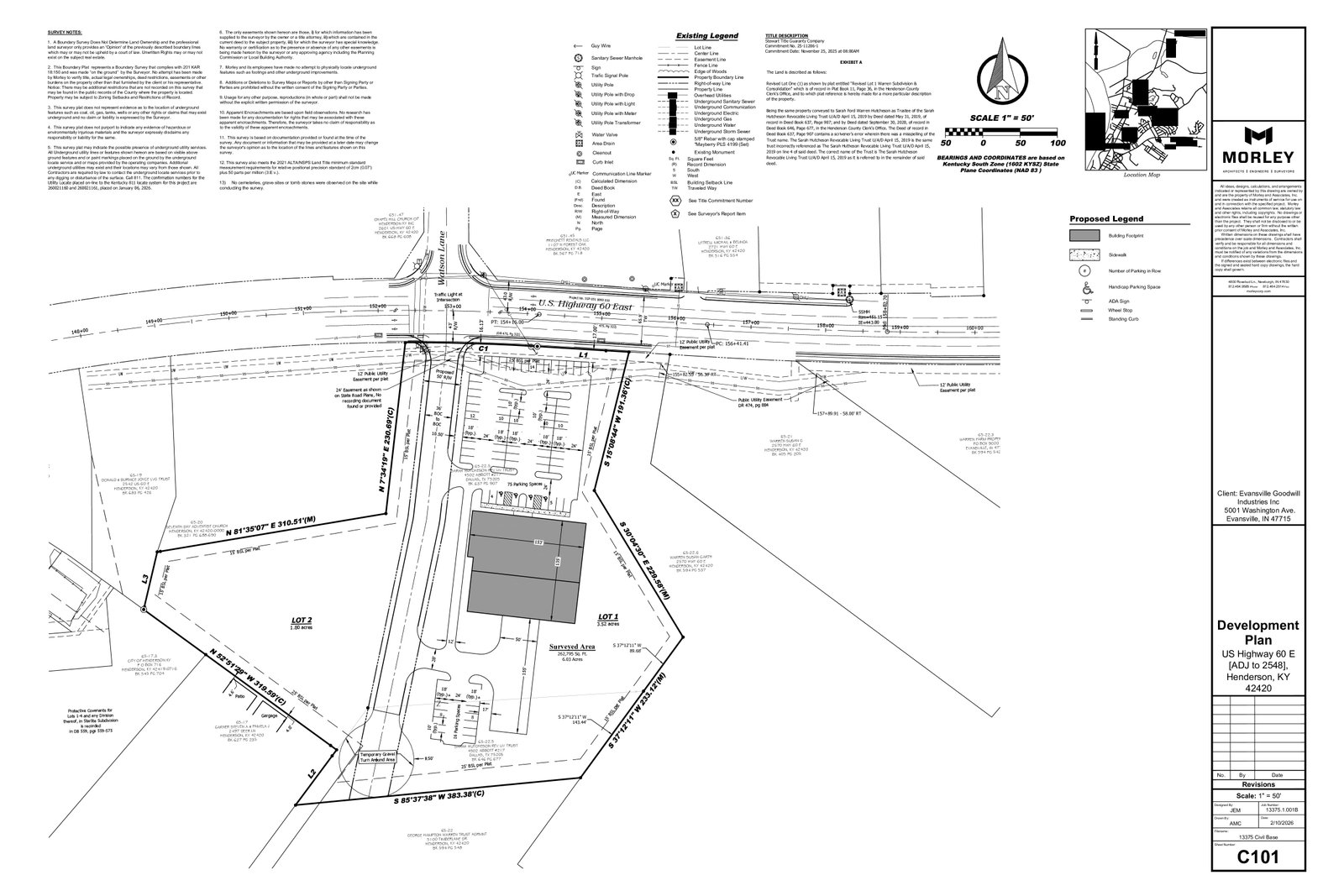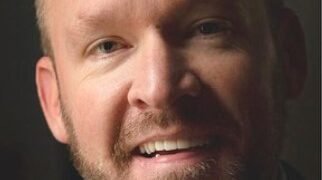Seven candidates are vying for four seats in the Henderson City Commission race. Three—Robert Pruitt, Rodney Thomas and Nick Whitt—are incumbents. Four more are challengers—Kelsey Hargis, Dwight Williams, Tom Williams and write-in candidate Jay Randolph. Using the candidates’ responses to the questions asked at the Chamber of Commerce’s candidate forum on Oct. 23, the Hendersonian compiled paraphrased responses about some of the important Henderson issues. Randolph wasn’t invited to the forum, so we called him the next day. We also called the others the next day for a few more questions.
We hope you study this, while also looking for other sources of information, including individual candidate interviews that can be found on the WSON website and the video of the candidate forum, which can be found on the chamber’s Facebook page.
Go vote on Nov. 5
Here goes…
1. There’s one negative about I-69’s completion—the possibility of the closing of the southbound Twin Bridge. What will you do to help businesses on the 41-Strip if in fact the southbound bridge does close?
Hargis: “It is imperative that we continue to lobby state and local government to keep both bridges open.” But we need a Plan B, “just in case.” She says that with the new Audubon State Park Conference Center coming, the 41-Strip has a chance for revitalization.
Pruitt: This commission is constantly keeping pressure on the state to keep looking at a plan for businesses that could be displaced. “I don’t think that it will affect the car dealerships.” The commission will help businesses relocate.
Thomas: “I hate to be the bearer of bad news” but one of those bridges is going to go, he said. When I-69 comes, the city must ensure that there’s easy access to the 41-Strip, he said. He also said the Strip can be revitalized and turned into a “destination instead of an eyesore.”
Whitt: He agreed with others that the city must continue to advocate to keep both bridges open. At the same time, the city needs to work toward other solutions if the southbound bridge closes. He said the Henderson-Henderson County Joint Planning Commission and staff have already begun discussions about the Strip’s future. There needs to be methods to attract people to the 41-Strip once I-69 arrives, he said.
Dwight Williams: He said he wants to meet with the owners of all the businesses located on the Strip and analyze business plans so that they can be prepared if one of the bridges closes. He said closing one bridge would eliminate semi-trucks from coming to the 41-Strip, which would cause gas stations/convenience stores to close.
Tom Williams: He agreed with Thomas, saying “it would literally take an act of Congress” to keep the southbound bridge open, and the city needs to plan. He said relaxing zoning regulations could help redevelopment of the 41-Strip area, mentioning the old Walmart shopping center as a prime location for multi-family housing. He said city should help smooth business transitions from the Strip to the I-69 corridor.
Randolph: “We have to do everything possible for that (closing the southbound bridge) not to happen,” he said. He said I-69’s arrival will cause many businesses, most likely franchise and corporations, to move to that corridor. The potential loss of locally-owned businesses will result in lost revenue for the city, he said. Plus, if the bridge that remains open has a northbound lane and a southbound lane, it’s inevitable that more accidents will occur.
2. Substance abuse is a problem in Henderson. The city helps fund some outside positions that work with addiction. Can and should the city do more? If so, what?
Hargis: She said the city’s funding for the Stop The Overdose Projects is worthy. Being able to get regular reports from STOP manager Carrie Gentry is key, and the funding needs to continue, she said.
Pruitt: “Any city can always do more,” he said. He said the city should have more interaction with high school seniors and parents to let them know how serious the drug problem has become.
Thomas: Thomas believes that educating children at a young age and then continuing to educate them about drugs’ dangers will keep them from trying drugs later. He also said that the city can fund more Narcan to combat overdoses.
Whitt: Education is the main point. The city funding the STOP effort, which is doing a tremendous job, he said. Henderson Police Department is also reacting to drug overdoses in a more compassionate manner. The city can provide more funding.
Dwight Williams: If elected a commissioner, he would like to talk to case managers to understand their needs. Then he would like to pursue funding for those needs through various sources. He also said that more needs to be done to stop drugs from entering Henderson.
Tom Williams: He agreed with others about education, and mentioned that having Narcan available in the workplace is also a need because overdoses occur there, too.
Randolph: One push Randolph has is for a homeless shelter to be built so that unhoused people with substance abuse problems can have a roof over their heads and get help from counselors. He also said that the city can be involved in establishing more substance education classes at all levels of county schools—elementary, middle and high schools.
3. Does the current commission or those seeking office believe that progress in diversity and inclusion is reflective in Henderson, in light of the economic growth our area is experiencing?
Hargis: She said it’s about the Golden Rule and there’s always room for improvement. “I want others to feel like they are welcome in Henderson,” she said, adding there’s always more room for someone to pull up a seat to the table.
Pruitt: He said he initiated an in-house diversity study at the city eight years ago which led to the first hiring of an African-American to lead a department, Trace Stevens of the Parks and Recreation Department. He said diversity has improved across the board at the city in the past 10 years.
Thomas: Diversity is getting better and many leadership positions across the city are led by people of diverse backgrounds, he said.
Whitt: He agreed with Thomas and said, “We are a welcoming community.” He said the divisive stories that people hear about nationwide tend to not occur in Henderson.
Dwight Williams: Treating people fairly is the most important thing we can do, he said.
Tom Williams: He said the city does a good job of making attempts to reach out to diverse communities. It’s often a tough to break down barriers, though. He also said most people talk about race and gender, but class should also be in the conversation.
Randolph: “I don’t think the city is at the level it needs to be,” he said. Diversity is not just about race, but also sexual preference, ethnicity, gender and religion. The city needs to hire the best qualified people, and hirings must be accessible to all types of people.
4. Transparency is always a concern for citizens when watching their governments. Is the city transparent enough? How do you plan to address transparency if you win a commission seat?
Hargis: She said the current city commissioners have always answered her questions, and she will do the same as a commissioner. There’s so much going on in city government that it’s difficult for citizens to keep up with all of it, she said.
Pruitt: “I am Mr. Transparent,” he said. He said in the past there was a city fund with $30 million-plus in it that other city officials didn’t want to be made known. He said he pushed for that to be made known because it’s the people’s money. He said members of past commissions weren’t transparent, but the past two commissions have always been open.
Thomas: “Transparency makes our job so much easier,” he said, noting that he wants residents to know where their dollars are going. He said commissioners were recently set to vote on an ordinance, but there was some disagreement voiced on Facebook, so the commission pulled back and decided to hold an open work session at a later date to discuss with concerned citizens.
Whitt: Whitt agreed with Thomas’ assessment about the ordinance and hearing from residents. He said the city has a public relations director who gets out information about city happenings and what will be discussed at meetings. He said he attempts to discuss and inform people about city items so that people will trust city government. He said that some meetings can be held at 5:30 p.m.
Dwight Williams: He said city government officials have always been transparent with him. He’s asked questions and always received answers and has also been shown budgets and the current Fire Station #1 when he asked about the need for a new station.
Tom Williams: He said that varying the times of meetings, holding some after work hours instead of all regular meetings at 3 p.m., is a good idea. He said in the past when meetings were at 5:30 p.m., they didn’t always draw big crowds, but having some at a later time shows accessibility. He said transparency will be needed in the coming months as the city selects a new city manager.
Randolph: He said there’s very little transparency even though people would like to say there is. He said the city can’t just put information on the website and expect everyone will see it. He also said that meetings need to be after work hours. And city commissioners should get out and talk to people. He also said accountability is lacking, pointing to the lack of understanding and reasons for the departure of Big Rivers several years ago.
5. Homelessness is an issue, although many in the community don’t recognize it as such. What are your thoughts on how best to deal with the homeless situation in Henderson?
Hargis: She said it’s a tough question because there’s such a gray area and each solution is different. She said she’d like to see the data that will be compiled in a year of having the homeless case manager (Melissa Colllier) and use those numbers to go forward.
Pruitt: Pruitt said he’d like for the city to invest in property with single rooms with a wash area. He’s also seen mobile help units in other cities that allowed help to go to the homeless where they are.
Thomas: Thomas said the new homeless case manager position that receives half-funding from the city is doing a good job, helping 18 people off the streets in the three months since she was hired. He said the city should look for other funding sources to help with rental assistance in the future because much of the homeless case manager’s job so far has been keeping people on the verge of homelessness in their homes.
Whitt: He said the city commission in the past few years has shown compassion. Funding a homeless case manager is a good first step. Whitt wants to see more data to determine the best way to assist. He said, ideally, the city would build a family shelter. But, he said there’s no agency currently that can take a shelter’s administration on.
Dwight Williams: He said the different sides of homelessness need to be identified. If a homeless person is down on his or her luck, then he or she needs to be worked with, including getting local agencies’ and churches’ help. He said the homeless case manager will provide information about the needs of the homeless and the commission should decide how to use funds to support those.
Tom Williams: He said the homeless case manager is a good step. If there’s an easy answer to the homeless question, someone would have already come up with it, he said. If citizens’ safety is compromised, firm action needs to be taken, he said..
Randolph: “We have the ability to build a shelter,” he said. “We need to build a shelter.” He also said case workers and mental health workers are needed. “Let’s do what needs to be done to help them on their road to recovery.”
6. Housing is a big concern. Basically, we need more. What will you do as a commissioner to increase housing in the community?
Hargis: “We do need housing. I hear it everyday in my day-to-day job,” she said, noting that the Jagoe subdivision being built on the north end was a big win and hopes that’s just the start. She said the city should work with community partners that are also trying to increase housing.
Pruitt: He said there’s not enough affordable housing in Henderson. The city should look into grants to build more, and it could look at other properties that are left vacant when businesses move to be close to I-69 as possibilities for housing.
Thomas: The city has locations spotted for smaller subdivisions, he said. It must now partner with local developers and help to more easily get water and sewer connections up for them and help in ways so that builders can make a profit building smaller starter homes.
Whitt: The increase of building costs makes it difficult for more affordable housing, which Whitt believes must now be built from public/private partnerships. He’s committed to further research in way of grants and methods other cities are taking to build more housing.
Dwight Williams: He said the biggest problem is having enough land in city limits to build more subdivisions. He said he’d work with developers to determine problems they are having in building, such as obtaining permits.
Tom Williams: The big constraint is lack of availability of land served by utilities, he said. Areas outside of city that could be developed, but the utilities aren’t there, he said. He said the city should look at ways to extend utilities to good areas for development. He also said that planning regulations should be relaxed in areas that would allow multi-family units in single-family zoning.
Randolph: He said officials need to better understand the community they’re serving, noting that homes being built now—Jagoe and others—aren’t affordable for most Hendersonians. He said $80,000-$100,000 homes are affordable for most here. And the city should set up a decrease on property taxes so lower-income home owners can stay in their homes.
7. The city has identified numerous high-cost projects for the future. Some have already been “accounted for” in planned funding and some don’t yet have funding attached to them. What would be your push for these projects if you are elected?
Hargis: A lot of the projects are long-term projects, such as Fire Station #2. The city won’t build that right after Fire Station #1 is built. We need to keep a list of dream projects going. Having long-term goals allows the city to seek out funding avenues.
Pruitt: He’s not in favor of funding any projects if taxes are raised to do it. He said the sports complex came without raising property taxes. He said the city should seek grants and with current revenue, it’s plenty to get projects done.
Thomas: He said many of the projects that don’t yet have funding attached to them are more of wish list. He likes one of those projects, the multipurpose field, but doesn’t know if the price can be justified. Money will need to be set aside to upgrade the city’s parks, and one big upgrade or project looms—the Atkinson Park Pool. “We have to have a public pool,” Thomas said.
Whitt: He said the current list of the city’s projects—some that don’t have funding attached—is a lot of money. But the city commission is committed to not raising taxes. The city’s financial decisions and new additions have allowed for discussions of projects to even occur. Some are needs but the other projects that move forward should involve community input.
Dwight Williams: He said he thinks the city may need to readjust priorities. He said there are several needs that aren’t funded, but the athletic complex is. He said he wouldn’t eliminate any projects, but instead put some at the bottom of the list. He wants the athletic complex up and running before any additions are made to it.
Tom Williams: Prioritizing is key—projects you have to do, those you want to do and those you could do if money grew on trees. The money on trees projects you don’t do. He said a proposed loop road that could be built to parallel I-69 and connect Wathen Lane to Barret Boulevard is an important project. He said ideas, such as a new pool and Fire Station #2, may have to be pushed back and looking at extending current facilities’ lives may be needed.
Randolph: “We need to reassess everything. Do we really need this, do we really need that?” He also said that current bonding will leave future commissions in a bind, and the city’s grant writers must look for more funding.
*
Something that should be noted is that Randolph wasn’t invited to sit for the chamber’s Oct. 23 forum. The chamber’s policy is that candidates at the forum must be listed on the ballot. Randolph missed the January filing deadline, which disqualified him from appearing on the ballot. But he has since registered with the county clerk’s office and has filed with the Kentucky Registry of Election Finance.
“You deal with it and go on,” he said, but added he’ll use the snub to his advantage. “Of course, I’m going to make it known.”



















